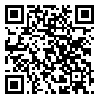Volume 1, Issue 3 (2021)
jpt 2021, 1(3): 213-227 |
Back to browse issues page
Download citation:
BibTeX | RIS | EndNote | Medlars | ProCite | Reference Manager | RefWorks
Send citation to:



BibTeX | RIS | EndNote | Medlars | ProCite | Reference Manager | RefWorks
Send citation to:
Barzegar Tabrizi F, Dibaji S. A Critical Look on Polkinghorne's Point of View; Insufficiency of Uncertainty Principles in Physics to Explain Divine Agency. jpt 2021; 1 (3) :213-227
URL: http://jpt.modares.ac.ir/article-34-48924-en.html
URL: http://jpt.modares.ac.ir/article-34-48924-en.html
1- Philosophy of Religion, Faculty of Theology, College of Farabi, University of Tehran. Qom, Iran , barzegarTF@ut.ac.ir
2- Philosophy of Religion, Faculty of Theology, College of Farabi, University of Tehran. Qom, Iran
2- Philosophy of Religion, Faculty of Theology, College of Farabi, University of Tehran. Qom, Iran
Abstract: (1440 Views)
In the philosophy of religion, Divine Agency has been related to how God does his action in the human world and the physical world. Polkinghorne has presented a particular method to answer this question. His theological approach has been a combination of Classical Theology and Process Theology. On the one hand, he has said that the God defined in Classical Theology is too unavailable, and on the other hand, he has criticized the Process approach to God. Polkinghorne has established that Epistemology is equal to Ontology, and based on this fact, he has explained his Critical Realism. In his view, the guaranty of reality is not to understand it but is its objectivity. Uncertain situations in Modern Physics presented in Einsteinian Relativity, Quantum Theory, and Chaos Theory is the main areas Polkinghorne has constructed his specific theory about Divine Agency on them.
Article Type: Original Research |
Subject:
Philosophy of Religion (Modern)
Received: 2021/01/5 | Accepted: 2021/06/29 | Published: 2022/01/23
Received: 2021/01/5 | Accepted: 2021/06/29 | Published: 2022/01/23
Send email to the article author
| Rights and permissions | |
 |
This work is licensed under a Creative Commons Attribution-NonCommercial 4.0 International License. |







